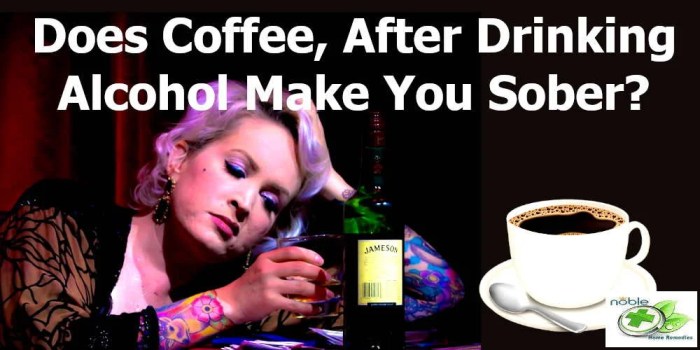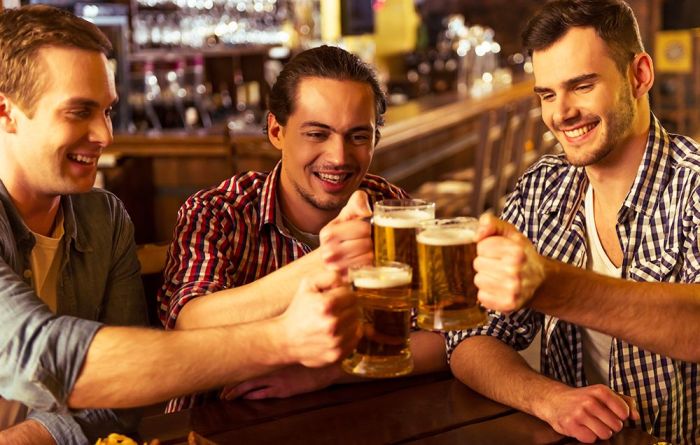Drinking coffee after drinking alcohol dmv – With the common practice of drinking coffee after alcohol consumption, it is crucial to delve into the physiological, safety, cognitive, and behavioral effects associated with this combination. This exploration will provide insights into the impact of caffeine on alcohol metabolism, the legal implications of driving under the influence, and the potential risks and benefits of coffee consumption after alcohol use.
Understanding the physiological interactions between coffee and alcohol is essential for informed decision-making. Caffeine’s stimulating effects can mask the sedative properties of alcohol, leading to an underestimation of impairment. Furthermore, the combination of caffeine and alcohol may increase blood alcohol concentration (BAC) levels, exacerbating the risk of driving while intoxicated.
Physiological Effects of Drinking Coffee After Alcohol Consumption

Consuming coffee after alcohol intake can have physiological effects that influence alcohol metabolism and blood alcohol concentration (BAC). Caffeine, a primary component in coffee, acts as a stimulant and diuretic.
Impact of Caffeine on Alcohol Metabolism
Caffeine does not significantly alter the rate at which the liver metabolizes alcohol. However, it can increase the absorption of alcohol into the bloodstream, resulting in a higher peak BAC.
Effects on Blood Alcohol Concentration (BAC)
Studies have shown that drinking coffee after alcohol consumption can elevate BAC levels compared to consuming alcohol alone. This effect is more pronounced in individuals who are regular coffee drinkers.
Interaction between Caffeine and Alcohol in the Body
Caffeine and alcohol have opposing effects on the central nervous system (CNS). Caffeine acts as a stimulant, increasing alertness and arousal, while alcohol is a depressant, impairing cognitive and motor functions. When consumed together, these opposing effects can mask the impairing effects of alcohol, leading to an underestimation of intoxication.
Safety Implications for Driving: Drinking Coffee After Drinking Alcohol Dmv

Driving under the influence of alcohol and coffee poses significant risks to the driver and others on the road. Caffeine’s stimulatory effects may counteract the sedative effects of alcohol, making individuals feel more alert than they actually are.
Risks Associated with Driving After Consuming Coffee and Alcohol, Drinking coffee after drinking alcohol dmv
- Impaired judgment and decision-making
- Reduced reaction time and coordination
- Increased risk of accidents and fatalities
Legal Implications and Penalties for Driving Under the Influence (DUI)
In many jurisdictions, driving with a BAC above the legal limit is considered DUI. Consuming coffee after alcohol consumption can increase BAC levels, potentially leading to DUI charges.
Statistics and Research Findings
Research has shown that alcohol-related crashes involving coffee consumption are prevalent. A study by the National Highway Traffic Safety Administration (NHTSA) found that 13% of drivers involved in fatal crashes had both alcohol and caffeine in their systems.
Cognitive and Behavioral Effects

Caffeine’s stimulatory effects can interact with alcohol’s impairing effects on cognitive and behavioral functions.
Effects of Coffee on Alertness, Attention, and Reaction Time
Caffeine improves alertness, attention, and reaction time. However, these effects may be diminished or reversed when combined with alcohol.
Interaction with Alcohol’s Impairing Effects
Alcohol impairs cognitive functions such as attention, memory, and decision-making. When consumed together, coffee’s stimulatory effects may mask these impairments, leading to a false sense of competence.
Potential Risks and Benefits
Coffee consumption after alcohol use may have both potential risks and benefits. While caffeine can temporarily improve alertness, it cannot counteract alcohol’s impairing effects on cognitive and motor functions. Therefore, it is important to exercise caution and avoid driving or engaging in activities that require good judgment and coordination.
Individual Factors and Considerations
Individual factors can influence the effects of coffee after alcohol consumption.
Factors Influencing Effects
- Age
- Gender
- Weight
- Tolerance to alcohol and caffeine
Importance of Individual Judgment and Responsible Decision-Making
It is important for individuals to make responsible decisions after consuming alcohol and coffee. Factors such as the amount of alcohol consumed, the time since last drink, and individual tolerance should be considered.
Guidance on When It Is Safe to Drive
There is no definitive answer to when it is safe to drive after consuming coffee and alcohol. It is recommended to wait at least several hours after drinking and ensure that all effects of both substances have worn off before operating a vehicle.
User Queries
Does drinking coffee after alcohol reduce intoxication?
No, caffeine does not counteract the impairing effects of alcohol on cognitive function and reaction time.
Is it legal to drive after drinking both coffee and alcohol?
Driving under the influence of alcohol is illegal, regardless of caffeine consumption. The combination of caffeine and alcohol can increase BAC levels, further impairing driving ability.
Can coffee help me sober up faster?
While caffeine may provide a temporary boost in alertness, it does not accelerate the elimination of alcohol from the body.